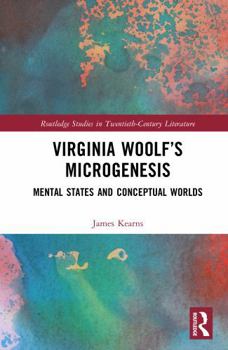Virginia Woolf's Microgenesis: Mental States and Conceptual Worlds
Virginia Woolf's Microgenesis analyses Virginia Woolf's novels through her own methodological approach to mind, to meaning, and to making whole. This volume argues that Woolf's preoccupation with the metaphysics of "wholeness," a dread, indeed, of both fragmentation, and of what endures, places her writings alongside Jason Brown's microgenesis, formulated as an unfolding, emergent, and evolutionary process of cognitive activity. However, and crucially, it is not by assembling multiple flows of sense data into more complex constructions that we might perceive the objective world, but by sculpting away the unfit to reveal the structure of the world as a surfacing reality. In so many ways, Woolf's novels represent an enactment of microgenetic theory as they emphasise the mind/brain state as a process of continual unfolding through progressive differentiation and discrimination to a distinct configuration. That is not to say that Woolf's writings should be understood as anticipating Brown's formulation of microgenetic theory as such, but that they should be understood as unearthing the adaptive and evolutionary significance (and signification) of microgeny through her own myriad methods of composition: tunnelling, transmuting, moments of being/nonbeing, and depth-and-surface, through which she may arrive at what she labels the "whole conception." Virginia Woolf's Microgenesis is essential reading for researchers and students in Woolf studies, process philosophy, new materialisms, literary theory, and modernist literature.





